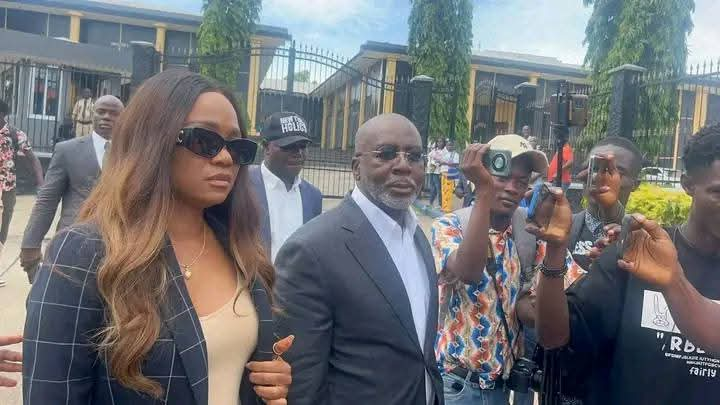The Liberian political landscape was rocked by the arrest and subsequent release on bail of four prominent lawmakers accused of orchestrating the arson attack on the Capitol Building on December 8, 2024. Former Speaker Jonathan Fonati Koffa, along with Representatives Dixon W. Seboe, Abu B. Kamara, and Jacob C. Debbie, were implicated in the attack following a police investigation that uncovered compelling evidence, including testimonies from individuals already incarcerated for their involvement and digital recordings purportedly linking the lawmakers to the crime. The charges levied against them are substantial, encompassing arson, criminal mischief, criminal conspiracy, criminal solicitation, intent to commit murder, aggravated assault, illegal possession of firearms, release and distribution of forces, and theft of property.
The lawmakers’ brief three-day detention ended on June 9, 2025, when Magistrate L. Ben Bacon of the Monrovia City Court granted them a substantial property bond of US$440,000. The decision followed intense legal arguments, with the lawmakers’ legal team vehemently asserting their clients’ innocence and guaranteeing their appearance in court for all proceedings. The bond, secured by properties owned by Jonda Janet Koffa and Marjan Mona Koffa, serves as a guarantee that the defendants will abide by the court’s rulings and remain within the jurisdiction until the case is concluded.
The gravity of the charges against the lawmakers cannot be overstated. Arson, the deliberate setting of fire to property, struck at the heart of Liberian democracy by targeting the Capitol Building, the symbolic seat of the nation’s legislative power. Criminal mischief signifies the malicious damage or destruction of property, further underscoring the alleged intent to disrupt the functioning of government. The charge of criminal conspiracy suggests a coordinated plan involving multiple actors to commit the crime, while criminal solicitation implies the act of inciting or encouraging others to participate in the illegal activity.
The accusation of intent to commit murder raises the stakes considerably, indicating that the alleged actions of the lawmakers could have resulted in the loss of life. Aggravated assault, involving the infliction of serious bodily harm, further suggests the potential for violence associated with the arson attack. The charge of illegal possession of firearms adds another layer of complexity, implying the presence and potential use of weapons in the commission of the crime. Furthermore, the charge of release and distribution of forces suggests a coordinated deployment of individuals to carry out the attack. Finally, the accusation of theft of property indicates that items may have been stolen during the incident.
The release of the lawmakers on bail has sparked controversy and raised concerns within the Liberian public. Many see it as a manifestation of the perceived leniency shown towards powerful individuals, potentially undermining the principles of justice and equality before the law. Others argue that the granting of bail is a fundamental right and that the accused are presumed innocent until proven guilty. The case has become a focal point for discussions about the rule of law, accountability, and the fight against corruption in Liberia.
The upcoming trial will be closely scrutinized, both domestically and internationally, as it unfolds. The prosecution will need to present compelling evidence to substantiate the serious charges against the lawmakers, while the defense will strive to challenge the evidence and establish their clients’ innocence. The outcome of the trial will have significant implications for the political landscape of Liberia, impacting public trust in the government and the judicial system. The events surrounding the Capitol arson attack serve as a stark reminder of the fragility of democratic institutions and the importance of upholding the rule of law to ensure stability and accountability.














